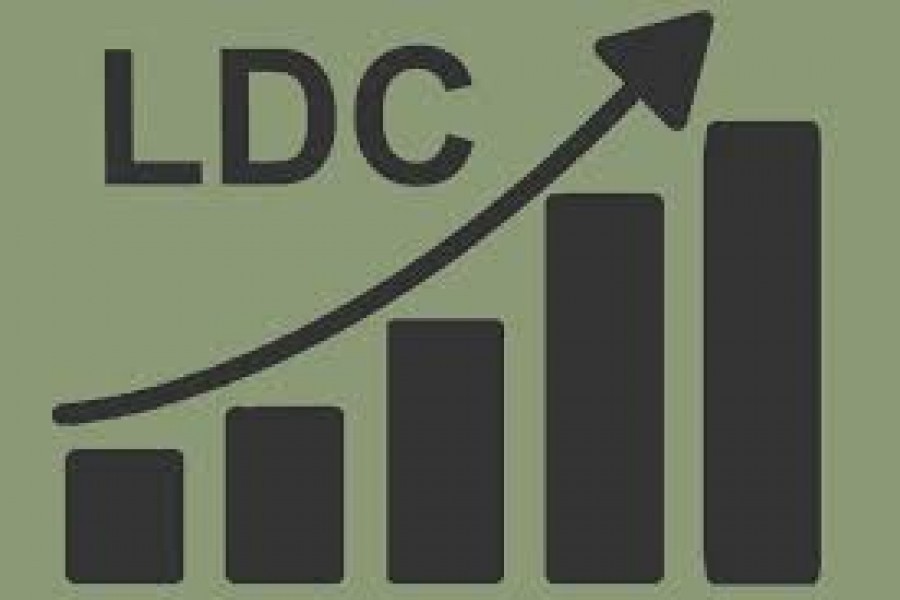Bangladesh ought to conduct comprehensive policy reforms for striking effective trade deals on preferential market access in the post-LDC era, a government body suggests as the country is poised for status change.
The suggestion comes as Bangladesh has opted to ink deals like free-trade agreement (FTA), preferential trade agreement (PTA), and comprehensive economic partnership agreement (CEPA) to offset the impacts of potential challenges to stem from the country's graduation to an upper level of socioeconomic status.
The ministry of commerce recently asked the Bangladesh Tariff Commission (BTC) to submit proposals on what kind of reforms or amendment on trade-related rules/regulations and policies are needed in initiating or signing FTA, PTA, and CEPA.
The tariff commission recently replied to the ministry, said a senior BTC official, saying that the periphery and clauses of FTA, PTA, and CEPA need to be identified first before preparing any specific recommendation.
Referring to a previously prepared report, the BTC said the commission reviewed 26 regional trade agreements which include five signed between developed nations, 11 between developed and developing nations, and 10 between the developing nations.
It says the peripheries of the RTAs are not limited only to commodity trade--issues like trade in services, movement of natural persons, investment, intellectual property rights, trade facilitation, labour, government procurement, e-commerce, competition policy, and environment are also included.
The BTC pointed out that in Bangladesh non-trade neutral duties like supplementary duty and regulatory duties are levied at import stage but these were not included in the regional trade agreements so far signed by Bangladesh.
Developed and developing countries include 'other duties and charges' in the definition of tariff which Bangladesh may need to drop in case of RTAs.
The commission says in the case of signing FTAs, Bangladesh may face significant challenges in following properly the various laws and rules which govern the services sectors.
"Nowadays, FTAs become highly comprehensive."
The commission cites two approaches-positive list and negative list-in the case of services-sector FTAs.
Sectors which will be opened are included in the deals in the case of positive-list approach. On other hand, sectors that will not be opened are included in the agreements in the case of negative-list approach.
"Thus, Bangladesh needs to review the existing rules and regulations on various sectors and mode-based service imports," it recommends.
Also, the BTC suggests taking a decision whether the country will go for FTAs in negative-list approach with any country.
It further says overseas-investment facility has to be there for proper use of the benefits derived by including services sectors in the FTAs. The issue needs to be taken into consideration to utilise the benefits of movement of natural persons.
Bangladesh is presently party to 22 investment deals, but only the post-establishment commitments are included therein. However, reviewing the sample RTAs it was found that in the case of investment, the pre-establishment commitments will also be incorporated which Bangladesh is new to.
The government allows overseas investment taking into consideration various criteria. Since the pre-establishment commitments remain inlaid in the FTAs, Bangladesh may need to bring changes in this clause in the future, it says.
Bangladesh also needs to take decision whether to pursue positive-or negative-list approach in case of investment while signing FTAs, it adds.
Regarding Trade-Related Aspects of Intellectual Property Rights (TRIPS), the BTC says, there are some issues that need to be included in Bangladesh's intellectual property rights-related rules and regulations.
 Bangladesh also needs to set its position immediately regarding trade facilitation-related deals, like Customs Convention on the ATA Carnet for the temporary admission of goods, UN Economic Commission for Europe, Istanbul Convention-1990, and WCO Customs Data Model.
Bangladesh also needs to set its position immediately regarding trade facilitation-related deals, like Customs Convention on the ATA Carnet for the temporary admission of goods, UN Economic Commission for Europe, Istanbul Convention-1990, and WCO Customs Data Model.
A policy decision also needs to be made for inclusion of Bangladesh in the UNCITRAL Model Law on Electronic Commerce.
Bangladesh is not a member or observer of the Government Procurement Agreement of the World Trade Organisation. Public procurement is not incorporated into any of the existing FTAs and PTAs Bangladesh has so far entered into. A decision is needed whether to include the public procurement in the trade-facilitation pacts or not, the commission noted.
The BTC also suggests taking decision through stakeholder consultations whether labour issues will be added or not in to the future FTAs and PTAs.
A commerce ministry official, who deals with the matters, could not be reached for comment despite several attempts.
Research Director of the Centre for Policy Dialogue (CPD) Khondaker Golam Moazzem told the FE that Bangladesh has not opted for FTAs and PTAs only to shun trade competition.
"Rather, we want market-access facility by signing these kinds of deals," he says about the way Bangladesh should walk around in doing trade as a free player in global trade arena.
The economist thinks to avail broad-based benefits Bangladesh will have to go for FTAs, and even for comprehensive economic partnership, instead of PTAs, by including all provisions of such trade deals.


